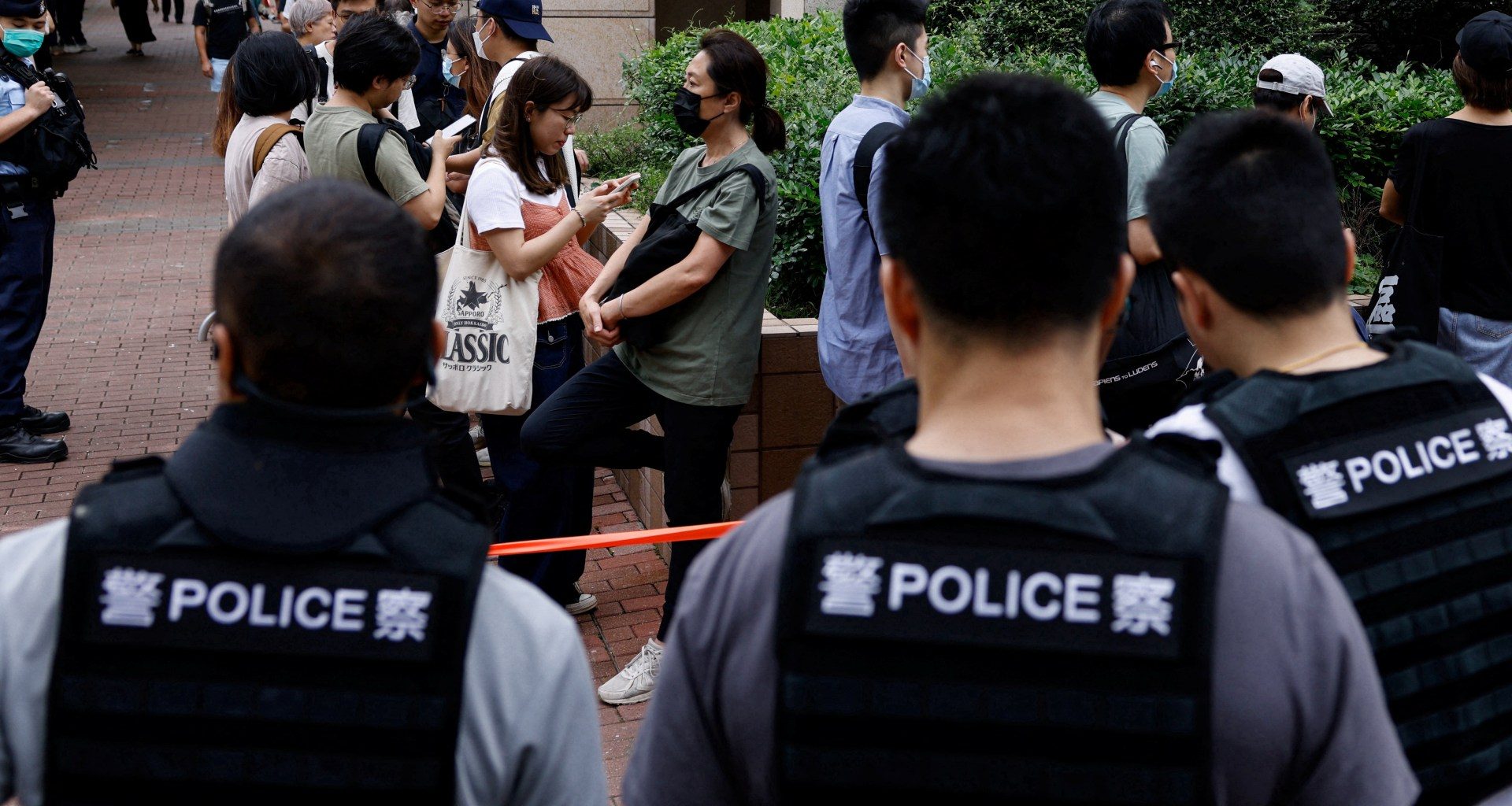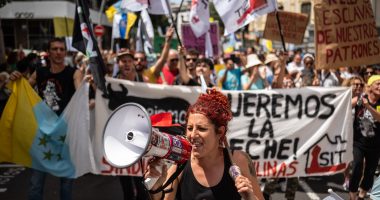
DEVELOPING STORYDEVELOPING STORY,
Two people acquitted in landmark national security trial targeting democracy activists and politicians.
A court in Hong Kong has found 14 of 16 activists and politicians guilty of subversion in the Chinese territory’s largest-ever trial under the Beijing-imposed national security law.
The judges, designated to hear cases brought under the 2020 security law, which does not allow jury trials, shared the reasoning for their decision in a 319 page document that was posted online.
The group was among 47 people, including some of Hong Kong’s most prominent supporters of democracy, charged over an unofficial 2020 primary to choose candidates for a Legislative Council election that was later postponed.
Many of them have been held in custody since they were arrested in a predawn swoop in January 2021.
Two of the defendants – lawyer and former district councillor Laurence Lau and social worker and fellow former district councillor Lee Yue-shun – were acquitted, making them the first people to be cleared of national security law charges since the legislation came into force nearly four years ago. Lau, one of the few defendants to be granted bail, organised his own defence.
The remaining defendants pleaded guilty.
The prosecution alleged the group planned to use their positions in the legislative council – if they were elected – to block Hong Kong’s annual budget, in a move that would have forced the city’s top leader to step down and dissolve the legislature.
The judges said they had taken a broad interpretation of the security law and that they agreed with the prosecution that the group’s alleged plan would have led to “political instability leading to a constitutional crisis”.
In a statement following the decision, Maya Wang, Human Rights Watch’s acting China director, said the verdict showed “utter contempt” for democratic political processes and the rule of law.
“Democracy is not a crime, regardless of what the Chinese government and its handpicked Hong Kong court may say,” Wang said. “Beijing promised Hong Kong people universal suffrage. It is Beijing that needs to be held accountable for repeatedly reneging on these promises, and for blatantly erasing the basic human rights guaranteed in Hong Kong laws and functional constitution.”
Amnesty International’s China Director Sarah Brooks, meanwhile, said the decision was the “most ruthless illustration yet” that the law was being “weaponized to silence dissent.”
Sentencing
Beijing imposed the national security law in the wake of mass protests in 2019 that were triggered by government plans to allow extradition to the mainland, where courts are controlled by the communist party, but evolved into calls for more democracy and an investigation into police brutality.
In district council elections that year, pro-democracy candidates won a landslide, and they hoped to build on that support to win more seats in the Legislative Council elections that were scheduled for September 2020. The government later invoked emergency laws to postpone that poll by a year, before Beijing changed the electoral rules to further limit the number of directly elected seats and ensure only candidates considered “patriots” could stand.
Nearly 300 people have been arrested under the security law or a colonial-era sedition law, and Hong Kong in March pushed through a domestic national security bill, known as Article 23, that it said was necessary to “close loopholes“.
The trial of the 47 will now proceed to its sentencing and mitigation phase when judges will consider the circumstances of each defendant.
Experts earlier told Al Jazeera that process could take as long as six months, and any defendants out on bail could have it revoked.
Those considered “primary offenders” or identified as a leader face a maximum term of life imprisonment under the security law. Lower-level “offenders” could be sentenced to between three and 10 years for “active” participation, while “other participants” could be looking at as long as three years in jail.
Pleading guilty usually earns defendants a reduced sentence, but it is unclear whether the national security court will follow the convention.
The 47 range in age from their 20s to late 60s and include some of Hong Kong’s highest profile opposition figures including Benny Tai, 59, a legal scholar and one of the alleged organisers; democracy activist Joshua Wong, 27; former journalist and legislator Claudia Mo, 67; and lifelong activist Leung Kwok-hung, 68, popularly known as “Long Hair”.
Read More: World News | Entertainment News | Celeb News
Aljazera







